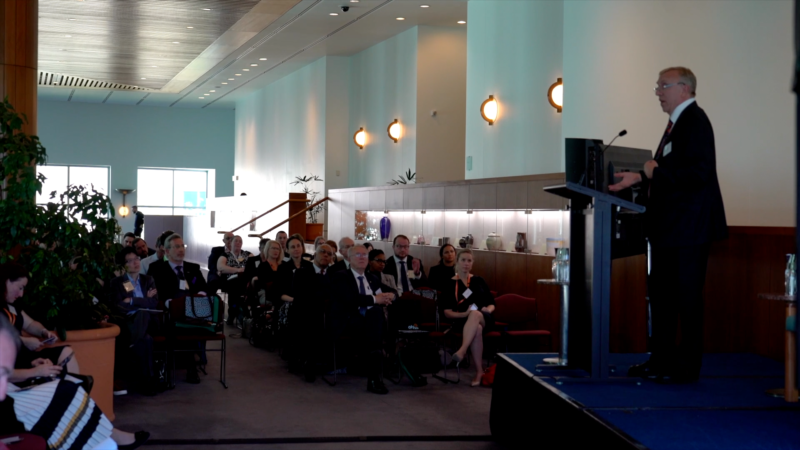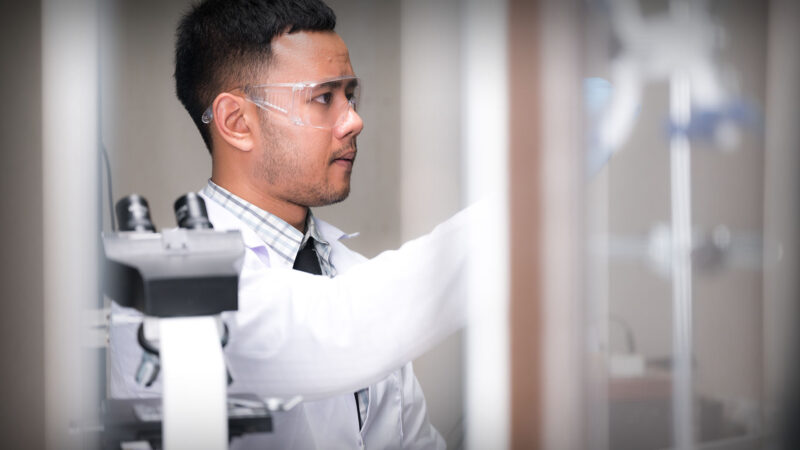5 YEARS IN THE MAKING, TARGETED NATIONAL LUNG CANCER SCREENING PROGRAM COMMENCES IN 2025 Lung Foundation Australia CEO talks about opportunity to treat patients presenting at early stage instead of late stage
Australian Health Journal SEGMENT
Filmed in Adelaide | February 2025
INTERVIEWED
Mark Brooke, Chief Executive Officer
Lung Foundation Australia
In February 2025, Australian Health Journal spoke with Mark Brooke, Chief Executive Officer of Lung Foundation Australia, at the 10th Australian Lung Cancer Conference in Adelaide, on the upcoming commencement of the National Lung Cancer Screening Program (NLCSP)
The conference theme, Evolution and Revolution in Lung Cancer, was chosen in recognition of the historic significance of 2025. Mr Brooke emphasised the importance of the National Lung Cancer Screening Program, which is set to begin on July 1st.
The Australian Government’s $267 million investment in the National Lung Cancer Screening Program aims to vastly improve lung cancer detection, treatment, and survivorship. When launched it will be Australia’s first new screening program in over 20 years.
Following a request from the Australian Government, Cancer Australia undertook an enquiry into lung cancer screening, publishing a report that informed the development of the NLCSP.
As the health peak advisory body to the Department of Health and Aged Care, the Lung Foundation aims to amplify the lived experiences of patients within this program. After nearly five years of preparation, the initiative is a crucial step in moving lung cancer diagnoses from late stages (three and four) to early stages (one and two), significantly improving patient care.
Mr Brooke expressed optimism that the timing for this screening program is ideal for Australia, given that lung cancer is the nation’s leading cancer killer. The program’s implementation is particularly challenging because it integrates with General Practice, requiring collaboration from healthcare professionals. While acknowledging potential hurdles, Mr Brooke is confident that the organisation and preparation for the program are well on track.
The program specifically addresses the needs of priority populations, including Aboriginal and Torres Strait Islander communities, who are disproportionately affected by lung cancer. Efforts have been made to provide culturally safe experiences and mobile CT services through partnerships with organisations like Heart of Australia, ensuring access for rural and remote populations.
Over the past five years, the Lung Foundation has collaborated with state governments to support the role of specialist lung cancer nurses. This initiative has proven to enhance timely care and improve patient pathways, ultimately striving for better outcomes in lung cancer treatment.
You Might also like
-
The 2019 John Deeble Lecture and Panel Discussion
The John Deeble Lecture and Panel Discussion was established by the Australian Healthcare and Hospitals Association to commemorate the life and achievements as distinguished scholar, health economist and health policy leader, Prof John Deeble AO.
-
Making clinical trials participant friendly
Clinical trials are essential in developing new, improved, and more effective treatments and interventions. Without trials, researchers and professionals in the field cannot properly determine whether these new treatments and interventions are safe and effective.
The Clinials platform is geared towards patient centric trials and reducing site burden. The aim is to accelerate lifesaving medicines coming to market by connecting participants and researchers. The platform allows participants to come to researchers with their eligibility in hand among other capabilities.
-
Improvements in dental literacy and greater clinical insights through digital technology
Dr. Kenneth Soh is a General Dentist based in Kellyville, New South Wales, a suburb located in northwestern Sydney. Originally from Melbourne, he studied Bachelor of Dental Science (BDSc) at Melbourne University and graduated in 2003. After working for a year in the Mornington Peninsula, Dr. Soh moved to New South Wales, initially thinking it would be temporary; however, he has been there for 19 years. While he has considered specialising, he finds joy in all aspects of dentistry.



